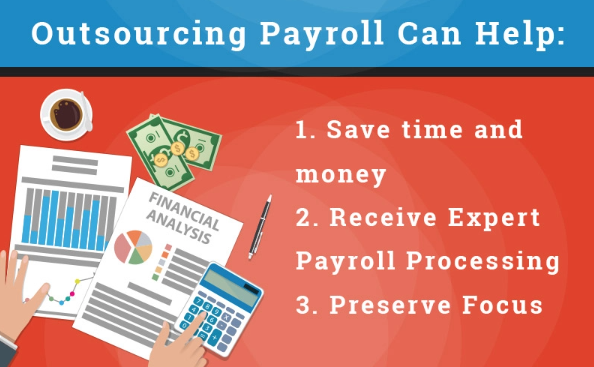
Payroll fraud is a major problem for businesses of all sizes. Whether it’s one employee fudging a time sheet or an entire department billing for hours that never occurred, this is the type of fraud that can cause even a successful business to go under. While fighting fraud is helpful, it’s even better to detect it before harm can be done. If you want to keep fraud from hurting your bottom line, you must learn how to detect payroll fraud. Those businesses that can learn understand the way to detect payroll fraud are those who have less to fear from fraudulent activities.
The best way to fight payroll fraud is to detect it and stop it before it becomes a problem. Unfortunately, many businesses just don’t have the systems in place to ensure that fraud is caught before it happens. There are, however, a few simple things that can be done to minimize the impact of fraud and catch some of the most egregious attempts before they can cause significant harm. All of these processes will require taking a closer look at the way you do business and be willing to act on any information that looks like it could cause your business harm.
One of the best ways to detect fraud is to look at things that stand out in your business practice. If something seems unusual, there’s a good chance that something unexpected is going on. You’ll want to pay particular attention to how your employees are acting and the type of paperwork that they are submitting on a regular basis.

When you’re looking at your employees, look for things that stand out. Is an employee suddenly living far beyond what you’d generally assume his or her means to be? That doesn’t necessarily mean that he or she is committing fraud, but you might want to check your timesheets. Have you noticed an employee picking up checks for someone or clocking them in? This might be a case where ghost employees are being used or timesheet fraud is occurring.
You’ll also want to look at paperwork. Is someone routinely submitting more expensive reimbursement paperwork than normal? If so, you’ll want to ensure that someone is taking a look at those expenses. Is there someone who made an unusual purchase for the department? It can’t hurt to double-check that the purchase is actually valid. Simply being observant can help you to avoid many types of fraud.
Business owners are already familiar with the importance of keeping their accounts reconciled. This is not only a great way to make sure that your business remains on budget, but it’s also a great idea to get an idea of what your business is actually spending. If you want to detect payroll fraud, it’s a good idea to start taking an even closer look at your books. In this case, you’ll want to be looking at not only what is there, but what you think should be there. The difference between the reality of your payroll situation and your actual payouts may reveal fraudulent activity.

The best place to start is with your budgeted payroll. Knowing how much you should be paying out each pay period will give you a good idea of what ought to be going out. Next, you’ll look at what’s actually gone out – the numbers should be close. Once you see the real numbers, you’ll be able to check and see why the discrepancies exist. In most cases, you should be able to clear up most differences through factoring in things like overtime or bonus pay. If there are numbers that still don’t add up, there’s a good chance that you’ve found fraud.
Perhaps the best way to detect payroll fraud is to stay ahead of the curve on your payroll systems. Don’t stay complacent, because unchanging systems are always easier to defraud. Even if you’ve got a strong system in place, there’s something to be said for repeatedly testing the ease of fooling the system. It means more work for everyone on your payroll staff, but doing so also means fewer losses to fraud.
Start by taking a frank look at how your systems work. Are there possibilities for fraud in the system you use? If so, pay careful attention to anything that could slip through those cracks. Once you’re aware of the damage that can be done, you’ll start to see the red flags. Once you’ve identified current problems and solved them, you can move towards making the changes that will ensure similar problems can never occur. Your payroll process should be constantly evolving to help you to detect and eventually solve fraud-related issues.
Outsourcing your payroll is, in many ways, an ideal way to avoid some types of fraud. It will help you to ensure that no one in-house has access to the materials or means to commit fraud on your watch and it will put another layer between your employees and payroll. In fact, moving payroll out of your business may be the best way to ensure that some of the most common types of payroll fraud can’t happen, if only because there’s less proximity to the payroll process as a whole.

Outsourcing will not, however, prevent all types of fraud. Payroll companies can only work with the data they are given, so anyone who is falsifying data will be able to fool a payroll company as easily as they fool your in-house payroll department. Though payroll companies are generally rigorous about double-checking their data, any type of fraud that happens before the data submitted will still be as likely to occur. As such, you’ll need to stay vigilant and make sure that anything that leaves your office is something with which you are comfortable having processed and paid out.
To detect payroll fraud means to pay closer attention to the financial process of your business. You must take the time to observe any anomalies in your office, to reconcile your books, and to continually test your own payroll processes. If you don’t feel like you can keep the integrity of your payroll in-house, you may also want the added layer of security that comes with outsourcing the entire process. To see how your current security measures stack up, make sure to take the security quiz at PayTech so that you can determine your next move.